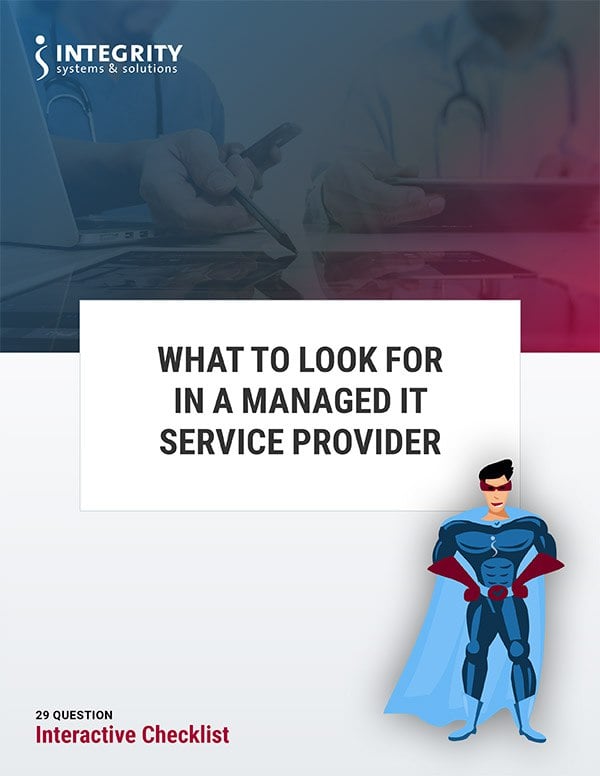The Integrity Blog
Insight into what questions dental and medical practices should ask managed IT providers as they are searching for one. The checklist also dives into red flags to be on the look-out for.
If your dental practice is accepting credit card payments from patients, then your practice is required to be PCI compliant. There are a number of standards your company must meet and maintain in order to attain and keep your compliance. In this article we will cover everything from what PCI compliance is to why it is essential for you, as a practice owner, to understand and implement.
Share
Since Microsoft Windows 7 and Microsoft Windows Server 2008 , including Windows Server 2008 R2, will be going to "end of life" as of January 14, 2020, it is important for you to understand what this means for your practice. Continue reading below to find out how you will be affected, the risks your practice will face if you continue using these products after end of life, and the steps you’ll need to take to switch to new operating systems.
Share

Insight into what questions dental and medical practices should ask managed IT providers as they are searching for one. The checklist also dives into red flags to be on the look-out for.
As a dental or medical professional, you want the ability to stay connected to your patients around the clock. Of course you want to remind a patient of an upcoming appointment or send them the latest practice newsletter. But what about really staying in touch and providing them with valuable information about their health? Whether it be sending over test results, asking patients for sensitive information, or sending treatment records, ensuring that your email system is set up to be safe, secure and HIPAA compliant is essential. In this blog we will outline 9 things you need to be doing to ensure your emails are HIPAA compliant.
Share
You have found a managed information technology partner, chosen the best practice management software, and have digitized your practice. Now you have to follow healthcare information technology standards. While it may be difficult, following healthcare information technology standards is very important to ensure the best service for your patients. Become familiar with what those standards are, and why it is important to have processes in place in order to preserve the integrity of your patient data and to avoid penalties.
Share
Nearly every industry relies on the internet to conduct business. For this reason, network security and cybersecurity breaches will continue to be in the news. Healthcare is one of these internet-reliant industries. Because of the confidential and valuable information that healthcare providers collect about their patients, healthcare has become a popular target of cyber attackers. Following HIPAA standards is not enough to keep data safe. Knowing that their practices have valuable data, medical and dental providers must take the proper steps to make sure that their networks and information are secure.
Share
Communication is key when it comes to providing a better experience for your patients. Improvements in medical information technology have made it easier for practices to adopt new methods to securely communicate with and educate their patients. Not only are there better ways to reach out to your patients, but with the advancements in medical information technology your patients’ private information is secure and Health Insurance Portability and Accountability Act (HIPAA)-compliant. Electronic health records make it easier for you to help your patients understand what is being recorded, and how they can use their health information. Here are five ways you can use medical information technology in your practice.
Share